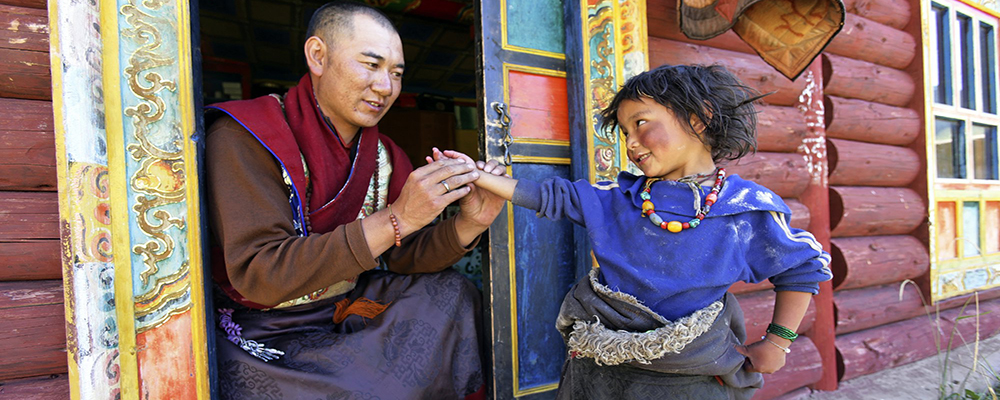
Buddhism is sometimes accused of being individualistic and indifferent to the needs of others and the world. This criticism is paradoxical if we understand that one of the cornerstones of Buddhism’s approach is to deconstruct the ego, and one of its main goals is to give rise to unconditional compassion for all beings.
Such biases stem from a misunderstanding of the Buddhist ideas of “renunciation” and “non-attachment.” Renunciation is not a question of turning away from what is truly good in life—that would be absurd. Rather, it the letting go of the on-going addiction we have to the causes of suffering, such as malice, arrogance, envy, jealousy, and other mental states that harm others and ourselves.
As for non-attachment, it has nothing to do with indifference. The goal of non-attachment is to free ourselves from habits that are based on our inflated sense of self-importance. These habits drive us to view the world and others through the lens of an “attraction-repulsion” dynamic.
The vow of a bodhisattva is to attain Enlightenment in order to be able to free all beings from suffering. If we familiarize ourselves with the Buddhist texts that present altruistic love and compassion as the main sources of progress towards Enlightenment, it is hard to see where this idea of narcissistic self-absorption would come from. As my friend the philosopher Alexandre Jollien likes to say, “Within the bubble of the ego, the air is stale.” Selfishness is a dead-end street for someone who wishes to become a better human being. As stated in a famous Buddhist text, “What is not done for the sake of others is not worth doing.”
The Dalai Lama, in particular, never stops to emphasize how vitally important altruism and compassion are, for our personal life as well as for the good of society. A few years ago, when I was asking him for some advice on the eve of a meditation retreat, he told me, “At first, meditate on compassion; in the middle, meditate on compassion, and at the end, meditate on compassion.”
I have been very inspired by such teachings and have had the precious opportunity to apply them according to my very limited abilities. They encouraged me to co-found, with Rabjam Rinpoche the abbot of Shechen Monastery in Nepal, the humanitarian organization Karuna-Shechen that today benefits more than 250,000 people annually in the fields of health, education, and social services in India, Nepal, and Tibet.